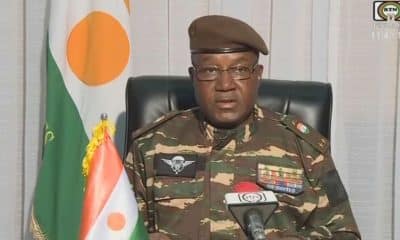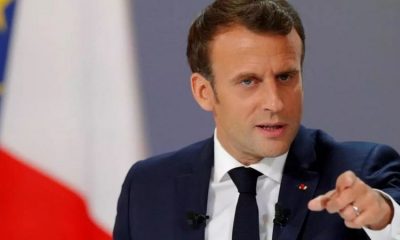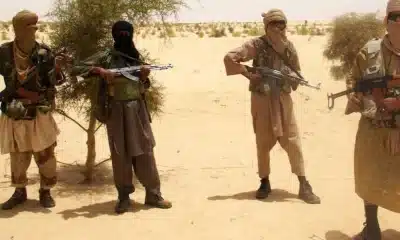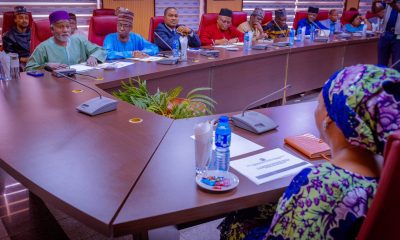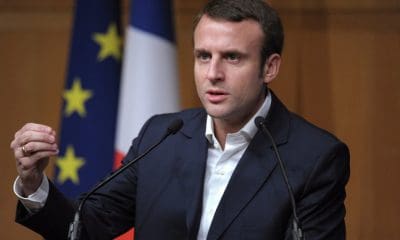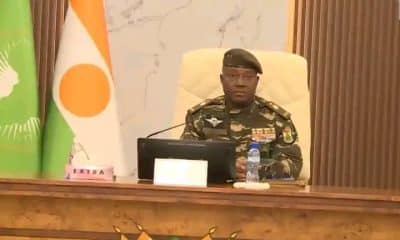Nigeria News
The Niger Coup: Putting Nigeria’s Interests First
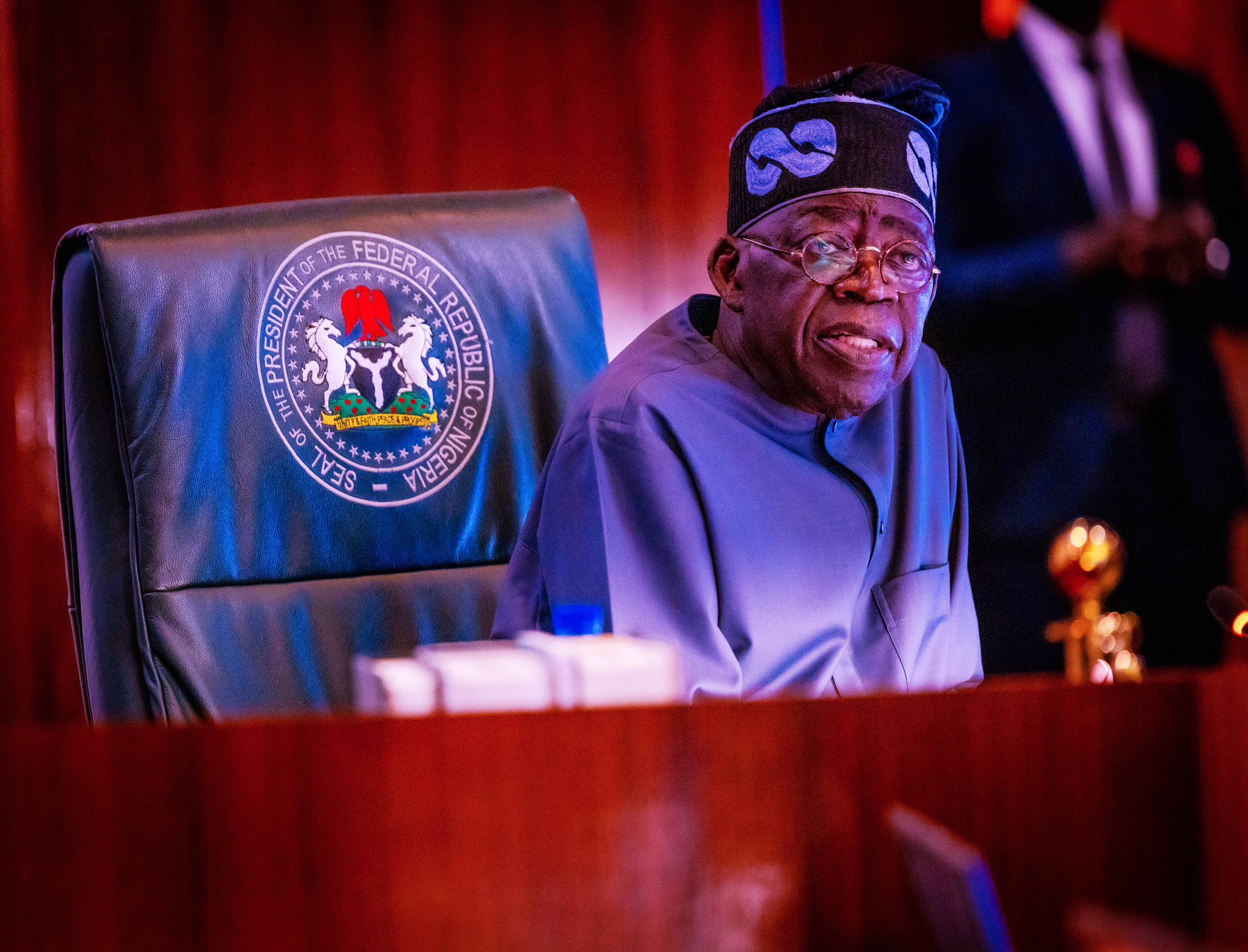
By Oluwole Onemola
Growing up, sitting at the table with multiple diplomats was always an intriguing experience. Their debates on foreign policy issues forced me to learn about international relations and hear analyses I never thought I would need.
Now, many years later, I always analyze international actions through a Nigerian national interest perspective — asking first and foremost, what’s in it for Nigeria?
Reading about the recent coup in Niger and the various opinions, especially on social media, it is clear that many people do not fully grasp why the July 26th coup that overthrew President Mohamed Bazoum is significant for Nigeria.
When analyzing the implications of the coup in Niger, we must take into account multiple factors. However, to keep things concise and practical, let’s focus on the major implications and historical occurrences.
In 1919, after the defeat of the Central Powers (Germany, Austria-Hungary, the Ottoman Empire, and Bulgaria) by the Allies (France, the British Empire, the Soviet Union, Japan, Italy, and the United States) in World War I, the Treaty of Versailles was adopted. This treaty resulted in territorial losses for Germany and its allies, leading to the redistribution of African territories among the Allied nations.
During this distribution, even among the victors, there were concerns about the allocation of territories, with the United States favoring French influence in Africa over the Soviet Union’s. This means that the United States and the Soviet Union had a somewhat cold relationship 28 years before the Cold War actually started.
However, it’s worth noting that over a century has passed since the Treaty, and many African countries are celebrating five or six decades of their independence. Nevertheless, we cannot underestimate the enduring influence of our former colonial masters on our political leadership, our economic decisions, and our socio-cultural leanings.
For instance, among the 16 West African countries, 8 use the West African CFA Franc as their official currency. This currency is issued by the Central Bank of West African States and is pegged to specific requirements and restrictions set by the French Treasury. As a result, while these countries are politically sovereign, they lack full economic independence.
This is why, almost every time there is a coup or orchestrated uprising in an African country, those who have the patience to follow the strings, will oftentimes find a colonial master or world power pulling from behind as a puppeteer.
In 2019, two years prior to the 2021 coup d’état in Mali, Russian Wagner forces arrived in Bamako. Today, after the coup, they protect Mali’s leaders in exchange for lucrative contracts managing mines and local natural resources. Quid pro quo.
Likewise, almost a year ago in Burkina Faso, a young captain in the special forces, Ibrahim Traoré, led a coup overthrowing President Paul-Henri Sandaogo Damiba, who had also come to power in a coup a few months earlier. Both incidents were followed by people in the streets waving Russian flags and expressing anti-French sentiments.
In January of this year, Burkina Faso announced the end of its military pact with France — expressing a desire for self-defense and self-determination. Similarly, sixty years after its independence, just a few days ago, Mali announced the end of French as its official language. All this cannot have happened by coincidence.
Now, shifting our focus back to the situation in Niger, its implications for Nigeria, and the underlying issues that demand consideration, we must first recognize that the success of most coups largely depends on the response of the citizens in the country. How did the people of Niger react? Do they genuinely desire the reinstatement of the former President?
Secondly, the global community, especially ECOWAS states, should reflect on the realities that enabled the coup to happen in the first place. What reasons did the junta give?
Thirdly, given the growing anti-French sentiments in various African nations, should we consider France’s hegemonic influence in these Francophone countries as a contributing factor to the occurrence of three coups?
Lastly, we must question the West’s commitment to democracy if it has allowed several African leaders to carry out ‘constitutional coups’ by extending or eliminating term limits to maintain their hold on power. This point is a story for another day.
Here in Nigeria, we must embark on some soul searching and ask ourselves several critical questions. Firstly, should we genuinely involve ourselves in Niger’s affairs, given the pressing issues we face at home with IPOB in the South-East and Boko Haram in the North?
Secondly, can Nigeria realistically contemplate a military intervention? Do we have the necessary senior administrative military experience to undertake such a campaign, especially considering that over 200 ranking military officers, many with crucial foreign experience, have been retired during Presidents Buhari and Tinubu’s leadership appointments?
Thirdly, how does Nigeria’s historical non-alignment strategy come into play? Assisting in removing coup plotters in Niger may oppose Russian interests, whereas leaving the coupists in power could conflict with French interests.
Therefore, in light of these complexities, we must reflect on what is ultimately in Nigeria’s best interests. Yes, if the situation in Niger escalates into a large-scale conflict, it may create a significant land corridor between Nigeria and Libya, where terrorists from the Islamic State currently occupy substantial areas. Such instability in Niger could also lead to a power vacuum that Boko Haram might exploit.
Furthermore, we cannot overlook the potential humanitarian crisis that could arise from prolonged conflict, impacting the entire continent. Consequently, taking no action is not a viable option. However, what action should be taken?
As we strive for a credible solution, it is crucial for the international community, from ECOWAS to the African Union (AU) and the United Nations (UN), to holistically examine the situation and reach a unified conclusion. The disparity between the AU’s 15-day ultimatum and ECOWAS’s 7-day ultimatum plus immediate sanctions raises the question of whose ultimatum the Niger junta should follow.
From an economic perspective, Niger holds significant importance, providing 15 percent of France’s uranium needs and accounting for a fifth of the EU’s uranium stock. Additionally, Russia, which either directly or indirectly supported the coup in Niger, also supplies the EU with a fifth of its uranium stock.
Looking ahead, this coup may have less to do with the individuals in power and more to do with Russia’s potential control of 2/5th of Europe’s energy needs. Consequently, the situation in Niger appears to be another proxy war concerning resources. Hence, hiding behind the toga of ‘adherence to democratic rule’ is just another soundbite that we have heard before many other international interventions.
The truth is, the more you look, the less you actually see. However, whatever unfolds, Nigeria should always think of Nigeria first. Everything else should be considered secondary.
I rest my case.
—Oluwole Onemola writes from Abuja. He tweets at @Onemola.—

